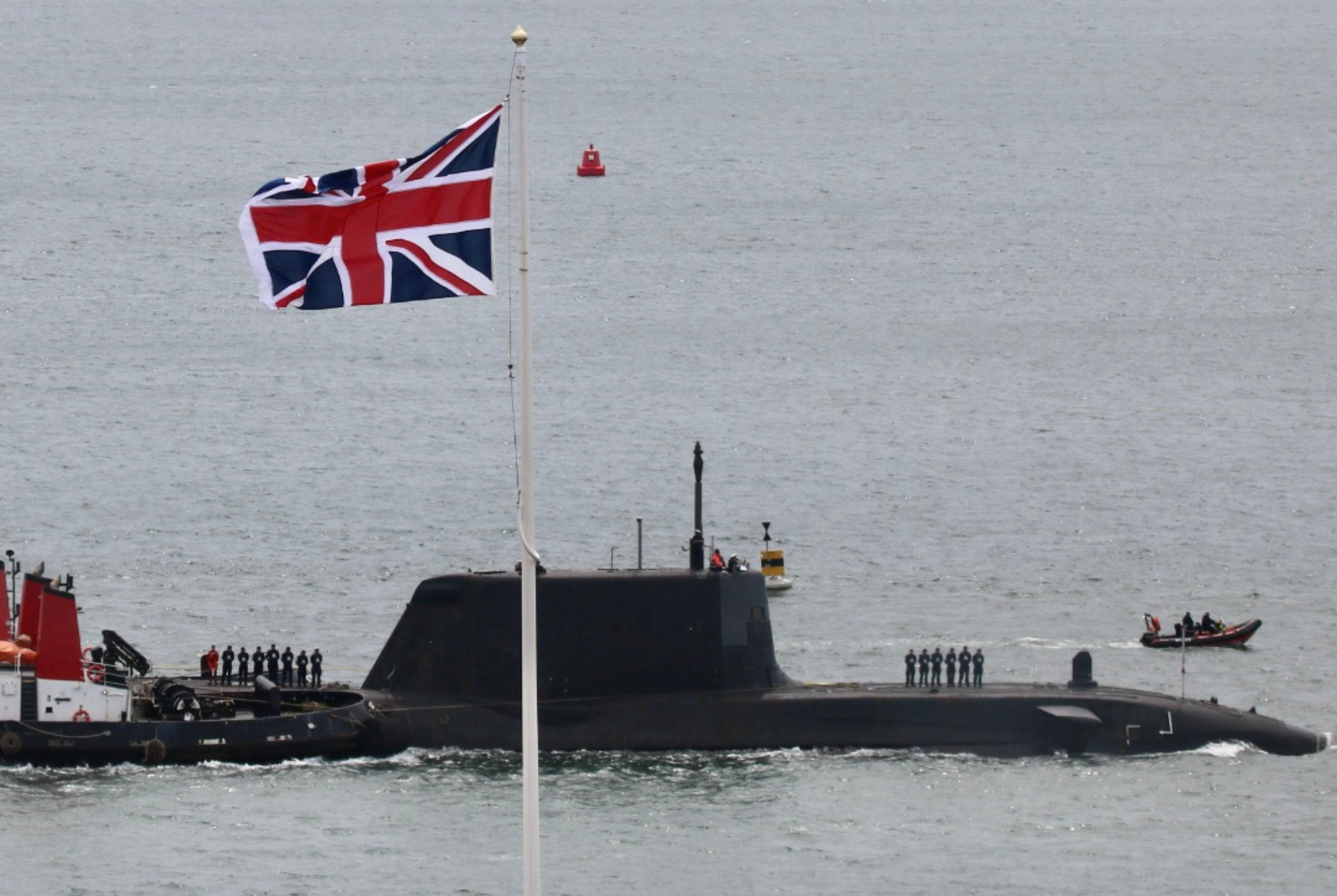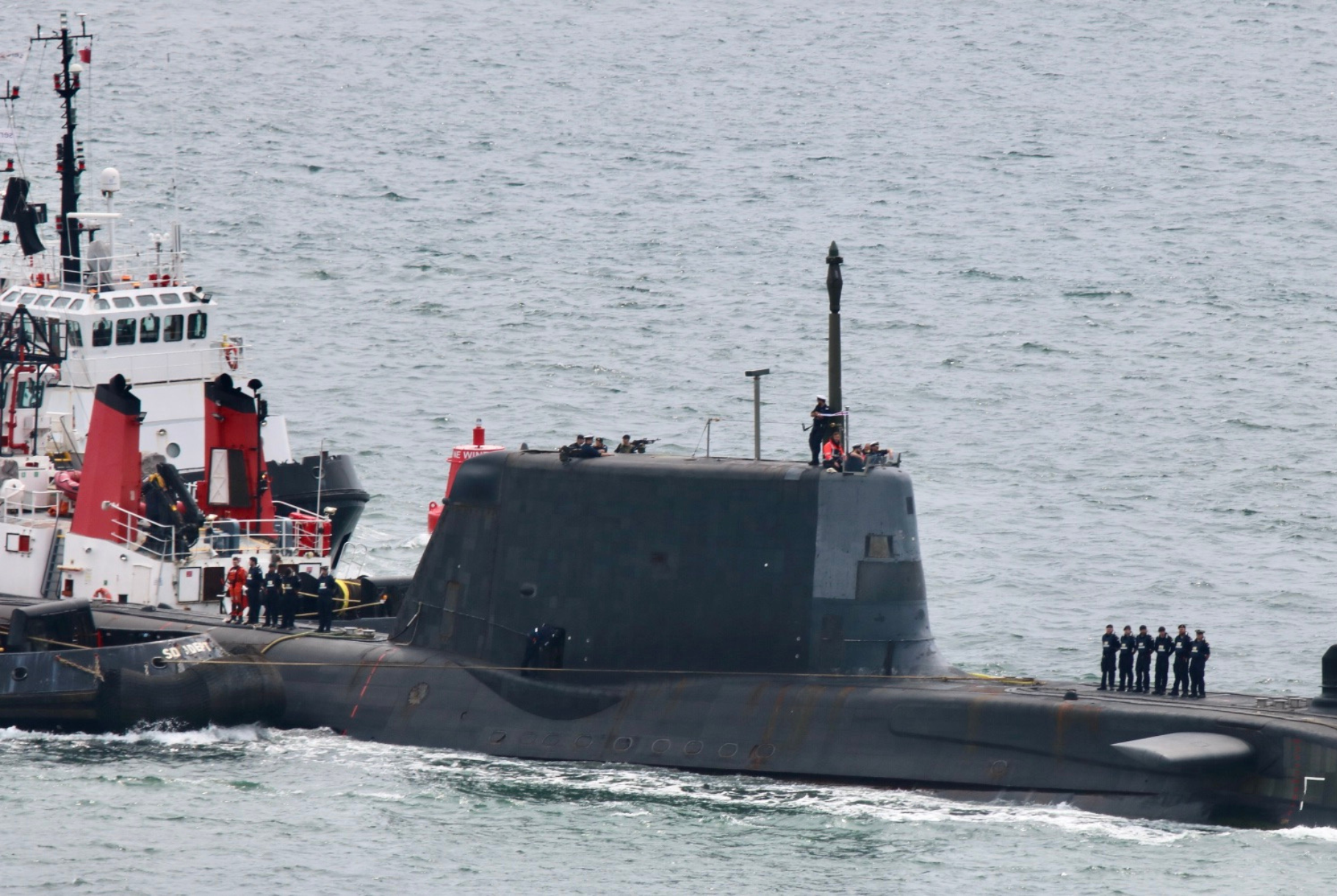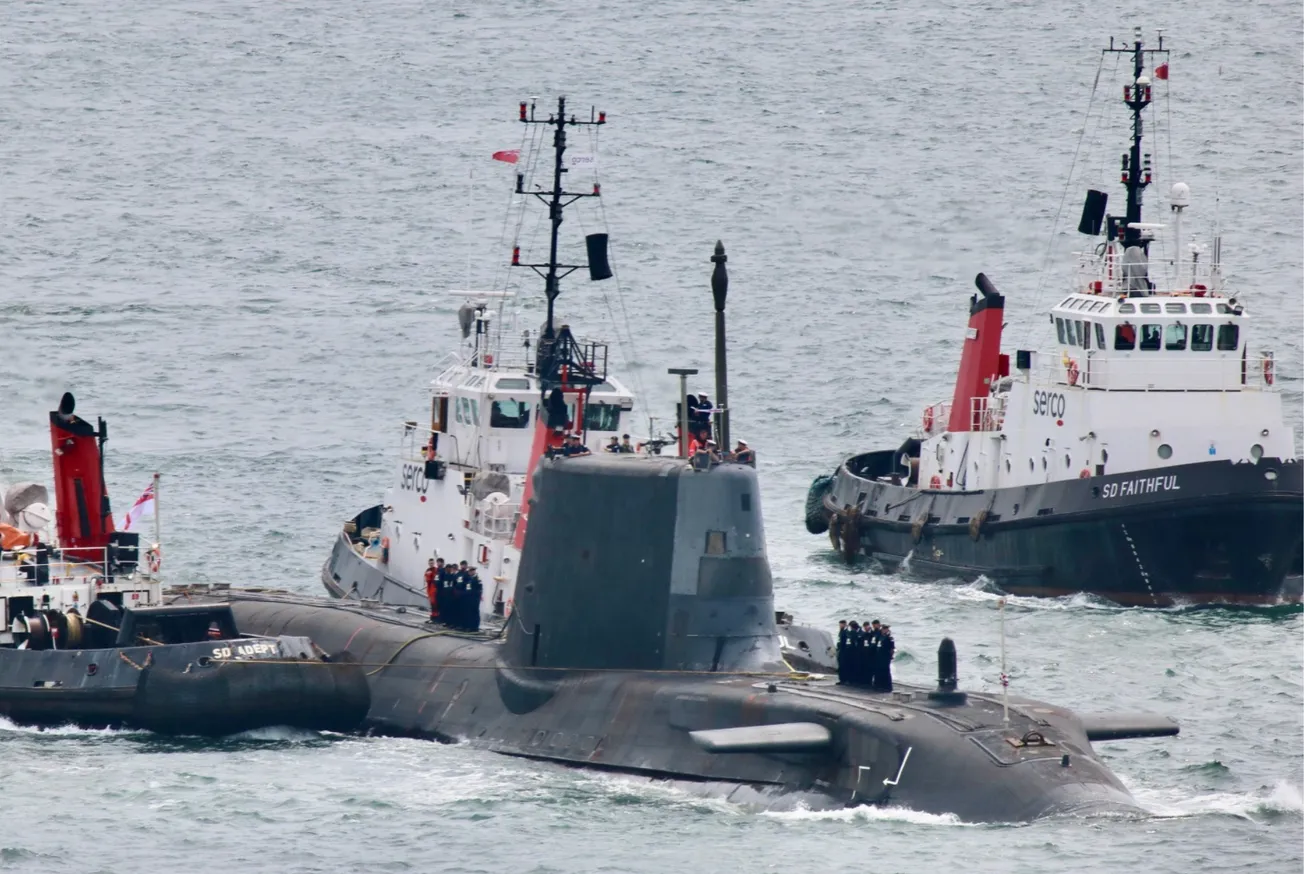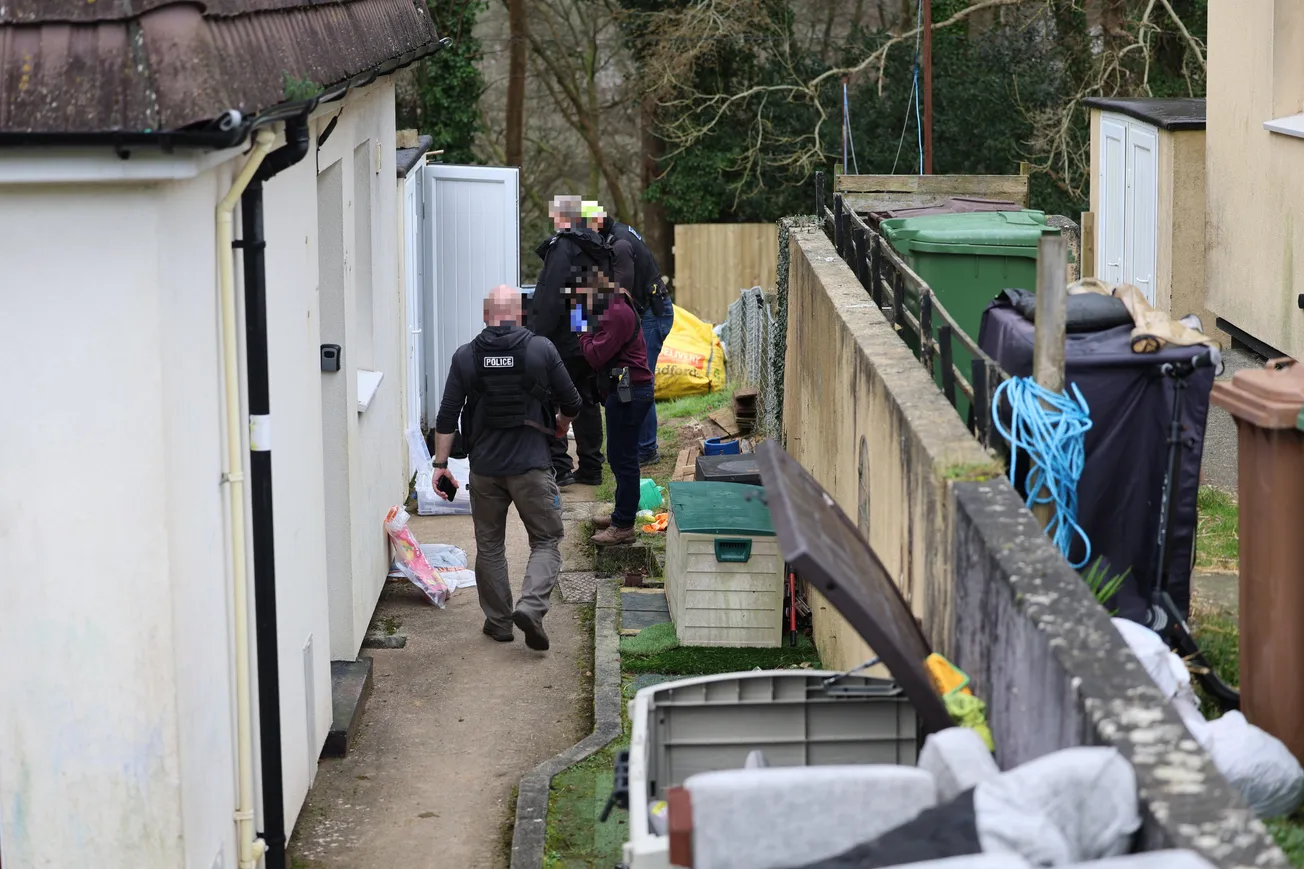HMS Astute has unexpectedly returned to Devonport Dockyard this afternoon after disarming her Tomahawk cruise missiles once again in Gibraltar just a few days ago.
Verified defence sources have told Plymouth Plus that Astute’s return is the result of further technical issues, following what appears to be the failure of earlier emergency repairs carried out at Devonport Dockyard earlier this year.
It comes after after a highly unusual sighting of the nuclear submarine surfacing off the coast of Portugal.
An interesting example of OSINT - Social media imagery, taken by French sailors off coast of Portugual this week of HMS ASTUTE lurking on the surface far from home... pic.twitter.com/QmIyGOeuJk
— Sir Humphrey (@pinstripedline) April 26, 2025
Despite a £1.2 billion price tag and claims of cutting-edge capability, Britain’s flagship nuclear attack submarine seems to have found herself once again side-lined, raising urgent questions about the reliability of the Royal Navy’s Astute-class fleet.
When Plymouth Plus was the first to report on HMS Astute’s issues and arrival into Plymouth in March, including her prior disarmament in Gibraltar, we faced immediate criticism from another 'independent' outlet.

The outlet published lengthy defamatory articles attempting to undermine our credibility and while failing to offer us a right to reply, a basic requirement of responsible journalism.
Time, however, is proving our reporting was indeed correct. Events since have unfolded exactly as Plymouth Plus reported. Disarmament in Gibraltar, unusual operations near Portugal, and now an unexpected return to Plymouth all point to the deepening seriousness of the submarine’s technical problems.
We stand by our previous coverage and are now carefully considering to pursue legal actions against those who attacked our credibility without offering us a right to reply, in clear breach of the most basic journalistic standards.
In a time when most newsrooms increasingly shy away from difficult defence reporting, Plymouth Plus remains committed to independent, rigorous journalism.
Our verified defence sources are thoroughly vetted and our editorial standards remain uncompromising. While others relied on conjecture and failed to engage with the facts, Plymouth Plus reported what was true, and events have since proven it.
For us, this is not just about HMS Astute. It is about the importance of integrity, transparency, and public trust in journalism. Plymouth Plus will continue to report carefully, responsibly, and fearlessly.

Speaking on condition of anonymity, a senior verified defence source said today:
"Astute is back for more repairs. The temporary repair hasn’t held. The issues run deeper than what was first hoped."
The sightings off the Portuguese coast have only deepened those concerns. Multiple defence analysts confirmed to Plymouth Plus that a submarine of Astute's class operating so near the surface in open waters is highly uncharacteristic and suggests significant limitations in her ability to dive or remain submerged.
One expert told us, "For a platform like Astute to be spotted on the surface in that location is highly unusual. It suggests a serious systems failure."
Astute's troubles come as the government announces plans to build up to 12 new nuclear attack submarines. The move is seen as critical to reinforcing the Royal Navy’s capabilities, but Astute’s difficulties are a stark reminder that investment alone does not solve systemic design and construction problems.
With HMS Audacious still in dry dock at Devonport, two of the Royal Navy’s front-line submarines are now unavailable. The fleet’s readiness is facing questions that cannot be ignored.
Sign up for free below to get notified with all the latest breaking news from Plymouth Plus.





